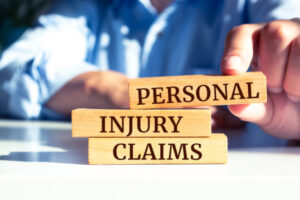Featured Article

The Austin American-Statesman reports today that Nancy Grace and several media outlets are being sued by an Austin, Texas dentist targeted in one of Grace’s broadcasts. The show focused on the fallout from yet another anesthesia-related death of a child during a dental procedure. Sadly, children dying during these procedures is becoming all too commonplace, and I for one would be hard-pressed to agree that anyone 21 years of age or younger undergo anesthesia – as opposed to those hated but safer shots in the gums. The risks in the dental office where many may not be trained to handle the life and death emergency, are simply too great.
But the purpose of this post is to focus on defamation, which in a very general sense is insulting a person by the spoken (slander) or written/recorded (libel) word. I won’t lose you to all of the qualifications or elements of a cause of action for defamation, but do want to impress on you just how risky it is for you to get caught up in the gossip of daily news. Grace and her media alleged and made a show out of an unproven theory that the dental procedure wasn’t needed at all, and of course had it not happened, then there would have been no death.
Certain folks are public persons who have interjected themselves into the mainstream of our lives, and they are pretty much free game. Trump or Clinton, Hannity or Maddow – they asked for it and you can pretty much say anything of an opinion about them or their issues and not be liable. A dentist who ‘may have’ committed malpractice? Be very careful.
Defamation per se is recognized as injurious without the need to show monetary loss. This is where the suit against Nancy Grace comes in. Lawyers such as myself that file suits against those who injure others – and I have handled several cases against dentists – are protected from defamation liability when we file official pleadings in court or argue to a jury. In fact, the defense demands we be specific with our ‘slanderous’ accusations. But, if an attorney stands on the street corner or goes on t.v. to make his case, then he/she is probably not protected and had better tamp the enthusiasm. And, of course, so should you on social media.
To insult someone in their profession, impute that they carry a sexual disease, or impute a crime to them, are all the types of accusations that can qualify you for becoming a defendant in court. There a quite a few things you could say or print that if they cause the loss of income to someone, you could be sued.
Now, the truth is a defense to these suits, but who wants to experience the inside of a courtroom as a defendant just to prove truthfulness? My best advice is to be very careful not to jump on the bandwagon of gossip in a matter that involves someone other than a public figure, especially via social media. It could prove to be quite costly.




